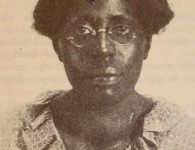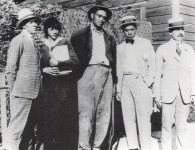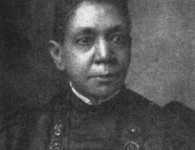Photo credits: The Montgomery Advertiser
Jeremiah Reeves, a 22-year-old Black man, was put to death by the state of Alabama on March 28, 1958, after police tortured him into falsely confessing when he was just 16 years old.
Jeremiah, a 16-year-old high school student at the time, and a white adult female named Mabel Ann Crowder were caught engaging in sexual activity at her house in July 1951. Ms. Crowder falsely alleged that Jeremiah had raped her. This prompted his arrest and transport to Kilby Prison for “questioning.”
White police officers strapped the terrified black minor in the facility’s electric chair. They informed Jeremiah that he would be electrocuted unless he confessed to committing each recorded rape against white women that summer.
In response to such horrifying and coercive pressure, he falsely confessed to the allegations. Jeremiah was convicted and condemned to death following a two-day trial. An all-white jury at the sham of a trial deliberated for less than 30 minutes, despite Jeremiah’s subsequent recantation and insistence that he was innocent of committing rape.
The local Black community thought (and for the most part, knew) that Jeremiah Reeves and Mabel Crowder had been engaged in a long-term, consenting relationship. Concerned about the unfairness of the young man’s conviction, the Montgomery NAACP intervened.
The organization helped bring Thurgood Marshall’s attention to the case. The conviction of Jeremiah was overturned on December 6, 1954, according to a report published by the Equal Justice Initiative.
This victory was achieved due to the fact that the U.S. Supreme Court determined the presiding judge, in the original trial, had erred by excluding the jury from hearing evidence of the police torture used to extract Jeremiah’s coerced confession – while he was severely under duress.
Jeremiah’s case was also a watershed for Montgomery’s fledgling civil rights movement. Claudette Colvin, who was jailed at the age of 15 after refusing to give up her seat to a white lady on a Birmingham bus in March 1955, was motivated to do this protest action by Jeremiah; her friend and classmate. Ms. Colvin eventually became one of four plaintiffs in Browder v. Gayle, the 1956 Supreme Court ruling that led to the desegregation of buses.
Rosa Parks corresponded with Jeremiah while he was incarcerated. She assisted him with getting his poems published in the Birmingham World. She then repeated Ms. Colvin’s action in December 1955, fearing incarceration for defying bus segregation and triggering the Montgomery bus boycott.
Unfortunately, in June 1955, Jeremiah was again convicted and condemned to death in a second trial. At this time, every appeal was refused. Jeremiah had spent most of his time on death row being creative by composing poetry.
He left his mother his last verse in his will. He stayed on death row until he reached the requisite age for execution, which was in 1958. Dr. Martin Luther King Jr. spoke during an Easter rally in Montgomery, Alabama, on April 6, 1958. Dr. King was standing on the exact area on the Capitol steps where Jefferson Davis was sworn in as president of the Confederacy in 1861.
The civil rights champion condemned the illegal conviction and wrongful execution of Jeremiah Reeves, which had just taken place seven days prior.
As mourners and activists assembled for the protest at the Capitol, they were accosted by Ku Klux Klansmen. The Klan was intent on terrorizing blacks during this peaceful gathering. Dr. King vociferously spoke out against the unfair treatment of white and black defendants who were victims of the courts. He was undeterred by the opposition.
“Truth and justice may be crucified and buried, but they will rise again. We must live and, if necessary, face death with this optimism,” King bravely stated in the shadow of racist terror.
A group of 39 local white pastors subsequently issued a slanderous statement criticizing the protestors for their “excessive focus on wrongs and complaints.”




















No comments